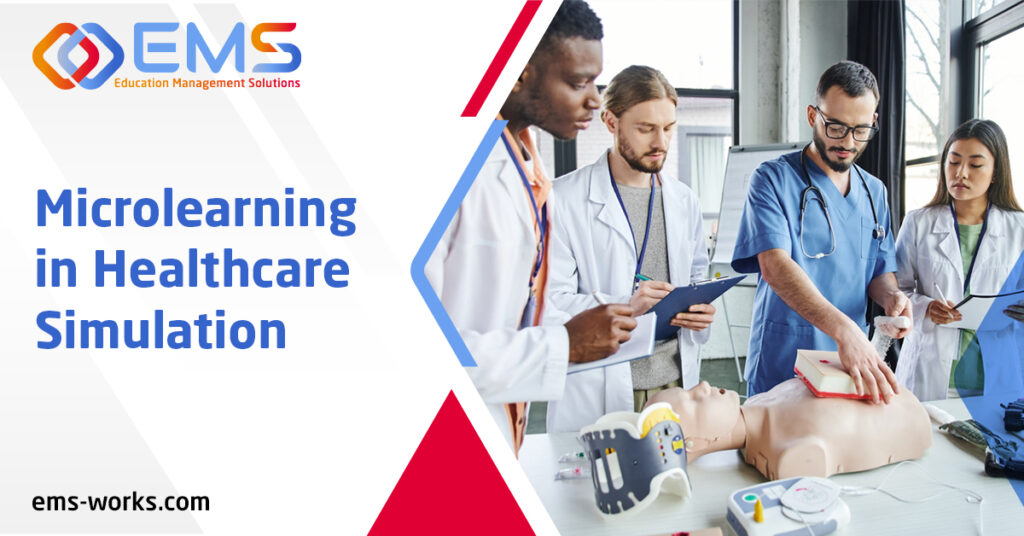Healthcare professionals are constantly challenged by evolving protocols, technologies, and patient care scenarios. With limited time for ongoing professional development, simulation educators are seeking novel and efficient ways to deliver essential training.
Microlearning in healthcare simulation has emerged as a powerful, just-in-time training tool for busy clinicians, offering targeted skill refreshers that fit into hectic schedules.
What is Microlearning in Healthcare Simulation?
Microlearning is an educational strategy characterized by short, focused learning segments designed to convey content in manageable, practical bursts. In the context of healthcare simulation, microlearning typically involves:
- Brief simulation scenarios (often less than 15 minutes)
- Focused learning objectives
- Immediate feedback and debriefing
- Easy access, often delivered in-person, at the point-of-care, or via digital platforms
This approach contrasts with traditional simulation exercises, which may last an hour or longer and cover multiple competencies.
Why Micro-Simulation?
High Impact, Low Time Commitment
Micro-simulation targets specific skills or procedures, allowing clinicians to reinforce or refresh critical competencies without stepping away from patient care for long periods. Studies suggest that frequent, succinct training sessions can improve knowledge retention and performance1.
Just-in-Time Training
Point-of-care micro-simulations make it possible for clinicians to access training when and where they need it—before performing a rarely used procedure, or as a quick refresher during a shift change. This modality supports patient safety and enhances confidence.
Flexibility and Scalability
Micro-simulation is easily scalable within healthcare organizations, as it requires fewer resources and shorter sessions. It’s suited for interprofessional learning and can be delivered in simulated environments or digitally (via mobile apps and online platforms).
Examples of Micro-Simulation Scenarios
- Airway management refresher: 10-minute session on intubation steps and troubleshooting.
- Medication reconciliation: 12-minute scenario to practice accurate documentation and communication.
- Code blue prep: 7-minute scenario to review rapid response protocols and role assignments.
- Hand hygiene technique: 5-minute interactive reminder using AR or video-based simulation.
Evidence and Best Practices
Research supports the effectiveness of microlearning in healthcare education:
- A systematic review found that microlearning interventions increased knowledge retention, improved clinical skill performance, and made training more accessible for busy professionals1.
- Incorporating micro-simulation enhances engagement by reducing cognitive load, allowing for frequent practice and immediate correction of mistakes.
The Potential Downsides of Microlearning in Healthcare Simulation
While microlearning in healthcare simulation offers distinct advantages, it is not without challenges:
Pedagogical Discomfort: Condensing learning into micro-scenarios may not provide sufficient depth or context, potentially making it harder to develop comprehensive critical thinking or clinical reasoning skills.
Technology Inequalities: Effective microlearning often relies on personal mobile devices, apps, or digital platforms. This dependence can exacerbate disparities for participants who lack access to reliable technology or internet connectivity.
Microlearning and Simulation a Potent Combination
Microlearning in simulation offers an effective, adaptable way to meet the training needs of busy clinicians. By introducing micro-simulation scenarios, simulation centers can provide high-impact education that fits seamlessly into clinical workflows, ultimately supporting excellence in patient care.
If you’re ready to explore how your simulation training program can expand its microlearning capabilities, we invite you to connect with a solutions expert to discuss how EMS’s flexible and scalable platforms are designed to meet the evolving needs of healthcare educators and learners alike.

